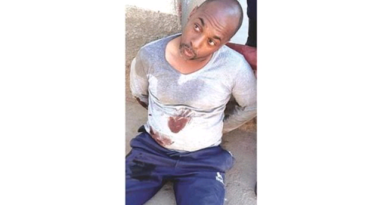Surviving infidelity in a Christian marriage
Matters of Faith
News of infidelity can shatter a person.
There is a deep sense of betrayal and broken trust when a spouse seeks fulfilment – emotional or physical – in another person.
Betrayed spouses are filled with questions: Will my marriage ever heal? Will I ever be able to forgive? Can I even dare to hope that our relationship will someday flourish again? Is surviving infidelity in a Christian marriage even possible?
Do you even have legitimate reason to be hopeful?
If both spouses commit to working through the wounds with honest dialogue and open hearts, then yes! There is reason to hope. The process will surely be difficult. But repentance, alongside good counselling and practical tools for establishing new patterns of behaviour and communication, can breathe new life into a broken marriage. It is, in fact, possible that the marriage can flourish and thrive in a greater way than before the infidelity occurred.
Seek Forgiveness
It is essential for the unfaithful partner to ask for forgiveness from their spouse. Although this may be obvious, there are frequently less obvious relationships left wounded in the aftermath of an affair as well. Forgiveness may need to be asked of many others, also, such as immediate and extended family members, close friends, and co-workers. Owning up to our wrongdoing takes courage and humility. It can be difficult to ask for forgiveness for the pain caused by selfish choices that disregarded the effects on others.
Go for counselling
It is difficult for all involved in an affair to recover from its aftermath. Because of the multifaceted components and emotions, it is critical to have a Christian counsellor or pastor guiding the healing process.
It is necessary for another to accompany the couple on this difficult journey of restoration.
The role played by this important “outside voice” is to assist in asking questions, mediating conflict when necessary, and directing conversations in a productive way. The view from outside the marriage can be enlightening and offer perspective to what may have contributed to the marital breach. A counsellor can also offer the crucial assistance needed to put practical guidelines in place for healthy patterns and to protect the marriage going forward.
Be honest about your hurts
There is no part of a person – emotional, physical, spiritual, or cognitive – that the betrayal of an affair leaves untouched.
The layers of hurt are deep and far-reaching. Therefore, there is no hurt or thought that should be considered insignificant. Peeling back and examining the layers is vital to unpacking the impact of the affair and to expose the hurts. The hurts of the offending partner should be attended to as well. Though the infidelity is not to be excused, it is possible that the marriage was strained before the affair occurred, and all hurts should be aired honestly and openly.
Be open to listening and acknowledging wrong
True listening is difficult to do. We are often drawn to defend or justify our actions and behaviours when listening to others recount how we caused hardship. But for genuine healing to take place, listening without defending is essential. Having an open, receptive posture and taking ownership for actions that have caused deep pain is a key element of the recovery process.
Recognise negative relationship patterns
In many cases, marriages develop harmful and unhelpful behavioural patterns before the infidelity takes place. Identifying these patterns is crucial for change to occur in the marriage. Sadly, many marriages are merely surviving, not thriving. A pastor or Christian counsellor can assist the couple in locating these hurtful patterns. Examples include not prioritising time for building the marriage; connecting with others and not face-to-face with your spouse; too much time absorbed by social media; insufficient time discussing hopes and dreams, with logistics, planning, and children dominating spousal conversation instead.
Agree to establish healthy patterns in the relationship
Identifying what needs to change is the first step. Next, the couple must agree and commit to which new, healthy behaviours they are going to put in place. Here is where the couple asks, “What must happen to bring positive change?”
Create opportunities for intentional time together
Intentional time is necessary for all marriages to thrive. How much more for a couple healing from infidelity? It can be small and simple. For example, setting aside a certain night of the week for date night. Being diligent about having face time twice a week.
Put accountability in place
Everyone in the process of recovery needs a trustworthy friend, pastor, or person to provide accountability. This is not just for the affair, but also accountability to the commitments and behaviours meant to restore and rebuild the marriage. You may be more likely to follow through on new behaviour patterns if you know you will be lovingly asked, “When is your next date?” or “Did your face-to-face time happen this week?”
Ask God to help you forgive and be willing to move forward.
Holding sins against someone is warned against in scripture. “Let all bitterness and wrath and anger and clamour and slander be put away from you, along with all malice. Be kind to one another, tender-hearted, forgiving one another, as God in Christ forgave you.” (Eph 4:31-32) To bring the wrong up again and again is unhelpful. When the hurt has been shared with the spouse, forgiveness has taken place, it is key to concentrate on the positive instead of the negative.
Allow time to grieve
Grief does not have a timeline. When a spouse forgives, it does not mean that all feelings of grief disappear. The grief journey varies from one person to the next. There will be times that it will be harder than at other times. There may be setbacks. However, continue to move forward and pursue what makes the marriage stronger. – spokanechristian counselling




